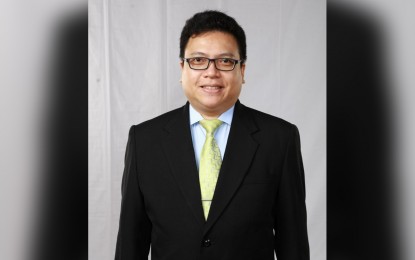
RECOVERY BOOST. Rizal Commercial Banking Corporation (RCBC) chief economist Michael Ricafort is optimistic that economic policies of the Marcos administration, along with recent fiscal reform measures, will help increase foreign direct investments (FDIs) to the Philippines. Net FDIs posted a 64.4 percent year-on-year decline last August. (Photo courtesy of RCBC)
MANlLA – An economist remains optimistic of foreign direct investments (FDIs) to the Philippines amid the decline last July, citing gains from fiscal reform measures and the economic policies of the Marcos administration.
The Bangko Sentral ng Pilipinas (BSP) on Monday reported the 64.4 percent year-on-year drop of net FDIs in July 2022 to USD460 million.
Rizal Commercial Banking Corporation (RCBC) chief economist Michael Ricafort traced partly the decline to market volatility during that period due to the climb to 40-year high of United States’ inflation rate last June at 9.1 percent.
Although US’ inflation rate decelerated to 8.5 percent last July, the Federal Reserve kept its rate tightening moves to reign in the elevated consumer price index (CPI) which affected investors’ sentiment and dragged investments, he said.
These factors are aggravated by the ongoing conflict between Russia and Ukraine, possible recession in the US, and elevated global commodity prices, he added.
Ricafort, however, believes that FDIs “could still pick up in the coming months” given the new administration statement that pandemic-related lockdowns will not be implemented anymore, and as the government has received investment commitments from the President’s visits in Indonesia, Singapore, and the US.
He said investments have also become more decisive in placing their funds in the country as the government continues to reopen the economy due in part to increased vaccination against the coronavirus disease 2019 (Covid-19).
“The missing pieces of the recovery story —tourism (foreign and local) and face-to-face/in-person schooling (100 percent target by November 2022) have already resumed and are on the right track to bring along related/allied businesses/industries towards a greater recovery path and could help attract more foreign investments/FDIs, going forward,” he added.
Among the reform measures Ricafort cited that are expected to help FDIs include the Corporation Recovery and Tax Incentives for Enterprises (CREATE) Law, the Public Services Act, the Retail Trade Liberalization Act.
“Possible membership of the country into the Regional Comprehensive Economic Partnership (RCEP), which is the world’s biggest free trade agreement and led by China, would help attract more FDIs to locate in the country as a production and/or marketing base, as well as an access point to bigger export markets of the other RCEP member countries in the region and in other parts of the world,” he said. (PNA)
